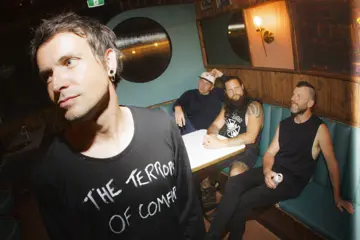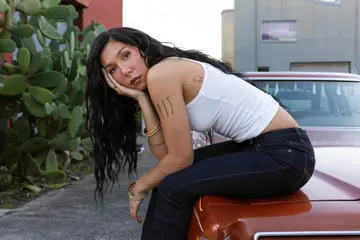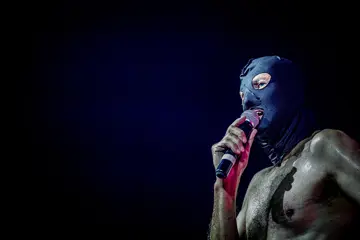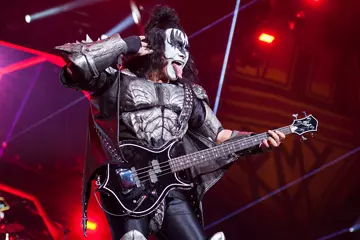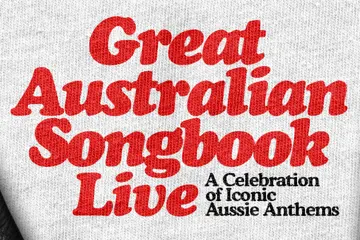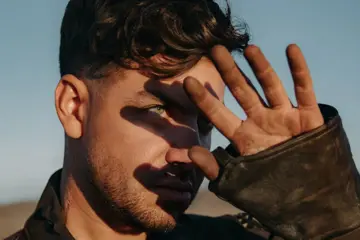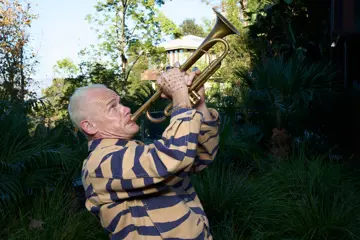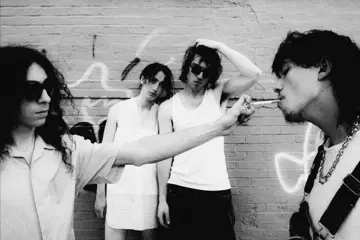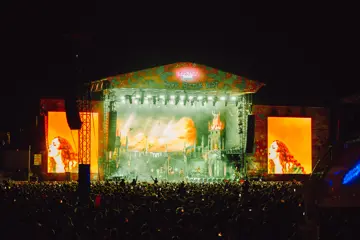Trying to navigate BIGSOUND’s program in recent years has become an increasingly daunting task, so you can only imagine the chaos behind the scenes.
That’s why, last year during the event, we received very exciting news that the team was expanding to include conference programmer Tom Larkin of Shihad fame, and Melody Forghani and Tim Shiel as festival programmers, aka the “lifesavers”, according to Executive Programmer Maggie Collins.
“It was too big a job for one person to do for ages, and just having the asset of extra brains and ears on the program was really good this year,” Collins begins. “They’ve brought a bunch of whole new perspectives.
“When we started programming the [conference], we wanted to make sure that we were keeping our focus on storytellers rather than just big names for the sake of big names. Anytime we can get someone as amazing as [Best Coast’s] Bethany Cosentino, that's a win for us, it's exciting, but sometimes the best stories come from people that are still on their journey or are working behind the scene, in Sahara [Herald’s] case.
“I think people are more interested in other people that they can relate to, so they'll go to events or they'll be really drawn into events where they can see someone that they can learn something off. And that's why the good storyteller is really, really important, rather than just a big name.”
Don't miss a beat with our FREE daily newsletter
As BIGSOUND rapidly expands, with a bigger program, more attendees and a new home at Cloudland, Collins thinks back to Archie Roach’s powerful keynote in 2017, something that’s helped guide the programming since.
“Something that really stuck with me was the idea of songlines, so the fact that everything is connected,” she tells.
“We were maybe putting things in silos a bit too much, and there's still a necessity to do that to a certain degree, but ever since then, we've been making sure the conversations we have are stretched across broader subjects so more people within different sectors can contribute.”
"That's definitely one of the biggest things breaking boundaries right now."
Working closely with Larkin, Collins has continued to build on her previous efforts of answering the ‘why’ instead of the ‘how’, in an effort to progress the industry as a whole.
“As soon as you look at the ‘why’ of things, the ‘how’ just follows naturally,” she says.
“There isn't one way to do things anyway, so if you talk about a ‘how’, in the context of ‘how to get things’, it's going to be different for everyone anyway, so it's way more important to focus on the ‘why’ and, ‘What is our environment like?’, ‘How far have we come?’, 'What are we in at the moment?’, ‘What needs to be improved as a community?’”
One element of the music industry that doesn’t need improving is the quality of local acts, which is why Forghani and Shiel had their work cut out for them when programming the festival aspect.
“It's been really eye-opening,” Forghani admits. One thing they were adamant about was ensuring regional acts and others who might otherwise fly under the radar were represented. In doing extensive listening and research, a few trends became apparent.
“There’s a couple of genres that seem to just be really thriving at the moment,” she tells, highlighting post-punk and folk, while stressing that hip hop is unstoppable right now.
“Sometimes seeing an example of someone from your world doing something that you resonate with can open you up to be more encouraged to do the same, so I think there have just been a lot of great [hip hop] artists who kind of started the process, and more and more people are being exposed to it and being excited and inspired.
“I think also, there’s a lot of great websites and stations and key people who are really pushing hip hop and encouraging people to not Americanise themselves too much and just be comfortable to talk about whatever they want to talk about in their own accents, and it’s become less of a stigma.”
Collins adds: “That's definitely one of the biggest things breaking boundaries right now. And it's also as a genre, or at least a culture of musicians, who are excelling in diversity too.”
Part of the appeal of BIGSOUND for artists, as Forghani explains, is those genre boundaries fall away during the event.
“It’s a really natural platform; it’s not like there’s a specific group or person who's benefiting from it,” Forghani tells.
“It's just there for people to be able to showcase their music in front of lots of other people. There's no huge promoter or anyone that is getting paid a stack of cash, so it's just nice to be able to play in front of your peers and in front of the industry and have as many opportunities as the next person does.”
With the festival line-up going from strength to strength each year and frequently breaking artists, it’s not surprising to hear that international labels, agents, managers, publishers and more are increasingly expressing interest in appearing on the conference line-up.
“We try to capture a good sample of each different sector of the industry and also different genres as well, based on what we're planning on programming at the event,” Collins explains.
“Any time there's a match between a BIGSOUND showcasing artist and an international delegate that was brought out, then that's BIGSOUND’s job done.”



